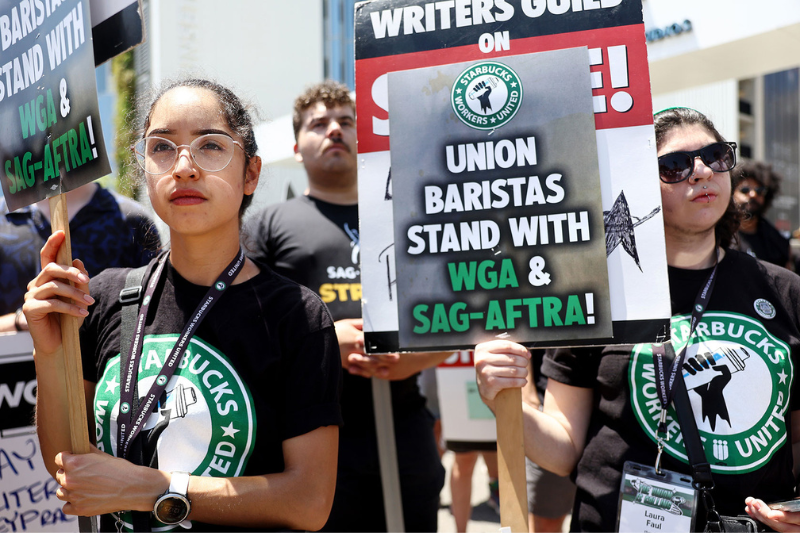

genz and millennials revive union movements, demand pay hikes
Strikes and union action are the latest buzzwords as Gen Z and millennial workers take the lead to have their voices heard and demands met. Companies all over the world have witnessed young workers reviving union movements and calling action.
Unions are struggling to keep up with young workers who are willing to take serious risks. Kate Bronfenbrenner, director of labor education research and senior lecturer at Cornell University’s School of Industrial and Labor Relations US, says Gen Z’s involvement and support for organized labor makes sense. She highlighted that they grew up being told they were going to be better off than their parents.
“The fact is, they struggled to find jobs, and the jobs they found were not as good as their parents’. They and the generations that follow them are saddled with college debt. They’re looking at a world where they wonder if they should even have children because of climate change. They’re concerned about broader social issues like reproductive rights and gun control, and planning to hold governments and employers accountable on those issues.”
For example the 2018 West Virginia strike which was led by millennial teachers. They had to challenge and overcome the risk aversion of their older and more moderate union officials. Similar strikes in Arizona and Oklahoma were led by even younger teachers as young as 23-years old. They were instrumental in pressuring official unions to support their strike movement.
Angelika Maldonado, the 27 year old packer who chaired the Amazon Labor Union (ALU) Worker Committee, said one of the main divisions was age. She highlighted that the average age of an ALU organizer is about 26, many older workers tended to be more skeptical of the union. But youth initiative in labor organizing is a new phenomenon in the US. They have been driven by economic uncertainty, and understaffing during the COVID-19 pandemic.
Bronfenbrenner believes that company practices during the pandemic increased Gen Z workers’ enthusiasm for unions as low income employees, service workers and workers without a higher education degree had difficulty accessing personal protective equipment (PPE), health care and paid sick time on the job.
“Many workers were on the frontline. When they asked for something as simple as PPE, or time off to take care of their family members, or to not come to work when they were sick, employers said no.” The expert highlighted that workers are willing to put up with a lot, but risking their life and your family’s lives is too much, and was a final straw.
Novo Energy, the battery manufacturing initiative co-founded by Volvo Cars and Northvolt, announced that it would cut 50% of its…
The Trump administration announced a national review targeting approximately 450,000 migrant children who crossed the US-Mexico border without their parents,…
In a new effort to speed up deportation processes, the Trump administration is unveiling an unpopular application, which gives undocumented…
In a bid to advance inclusive hiring and access a larger talent pool, Deloitte has opened up multiple roles for…
At the 2025 Great Place To Work Summit in Las Vegas, Marriott's CEO Anthony Capuano showed a powerful moment that…
A new report from Save the Children and Plan International, provides an alarming description of the experiences migrant children have…
This website uses cookies.
Read More